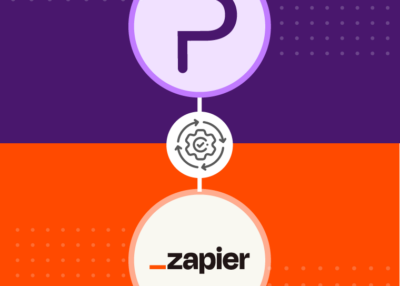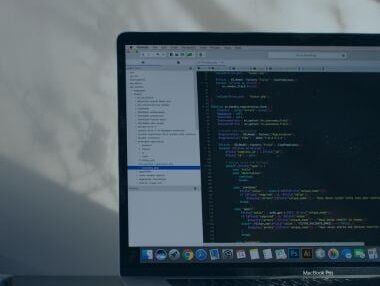How to Create Memorable, Engaging Meetings an Audience Won't Forget
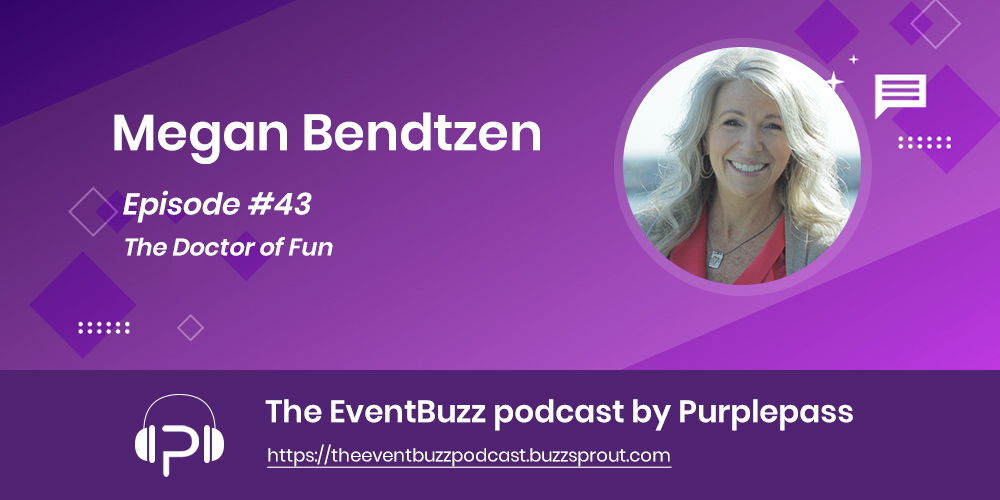
Podcast speakers: Savannah McIntosh (Purplepass Marketing Director) and Megan Bendtzen (The Doctor of Fun, consultant, speaker and fun specialist!). Jump to the show notes below.
The EventBuzz podcast: Megan Bendtzen
presented by Purplepass
Show Notes
Topic markers:
06:01 - How to make online meetings fun
09:28 - Bringing employees back into the office
13:22 - Gamification for meetings
17:43 - Biggest engagement mistakes to avoid
20:08 - Consider your audience and what they think is fun
Links:
Social links:
LinkedIn = /meganbendtzen
Twitter = @thedoctoroffun
Instagram = @_thedoctoroffun
Facebook = @thedoctoroffun
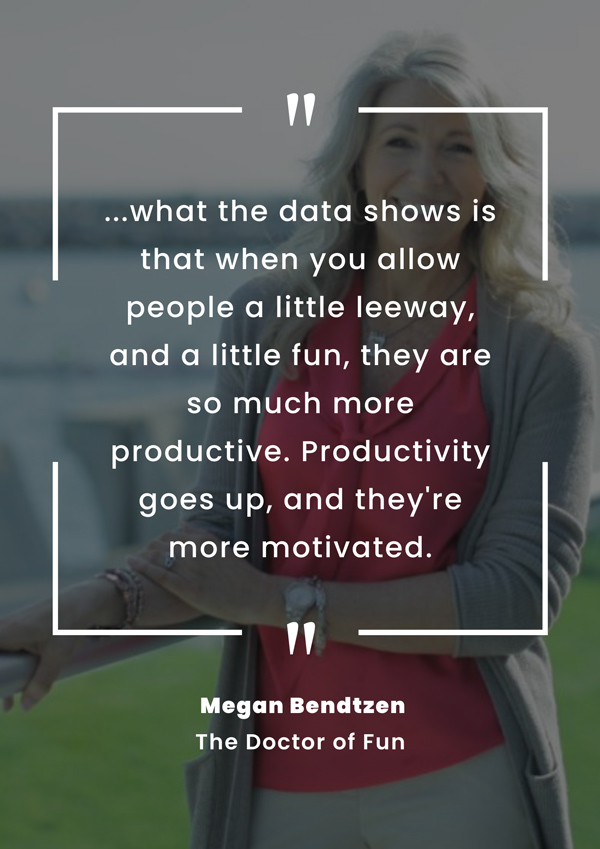
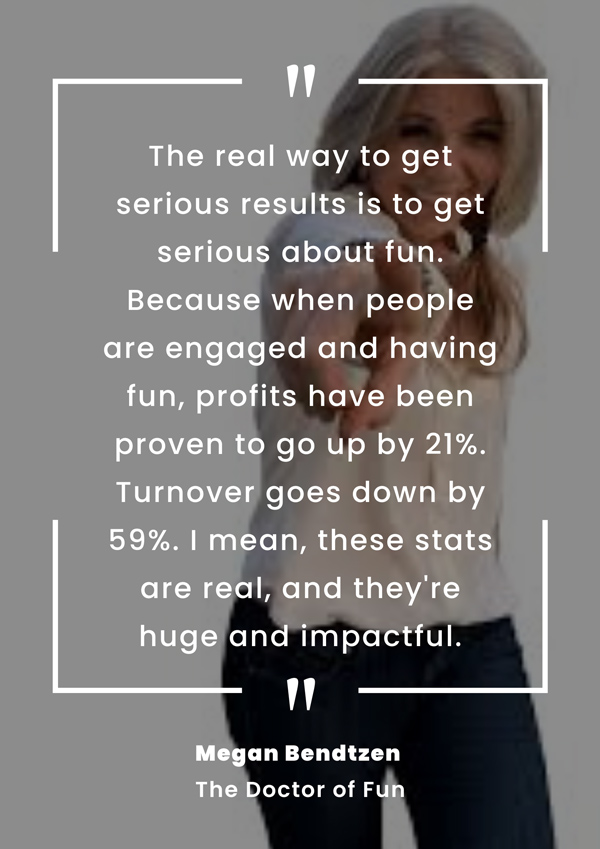
Podcast Transcript: Purplepass + Megan Bendzten
Savannah (Purplepass):
I'm your host Savannah McIntosh. And we are back with the EventBuzz podcast presented by Purplepass. Meet Megan Bendzten, better known as the Doctor of Fun! She has made it her mission to infuse fun back into the corporate mindset. So people are more engaged and happier at work. Known for her signature leadership development game shows she has studied leadership, communication, engagement, and personal growth for over 18 years. She is also the author of Let's Get Serious About Having Fun, and has been featured on NBC, Fox, I Heart Radio, just to name a few.
Hi, Megan, welcome to the show. And thanks for joining us today. How are you doing?
Megan (Doctor of Fun):
I am great. Thank you, Savannah for having me.
Savannah:
Awesome. Well, I already briefly introduced you to our listeners. But to start I did want to ask you, you know, the question that maybe everyone has, when they kind of learned about your story. Is why you chose to walk away from your corporate career and start this new business as the Doctor of Fun.
Megan:
It is, it's the question of sometimes I still ask myself that question. But I mean, truthfully, it was kind of born. While I was in the corporate world, I worked for a very corporate corporate type job. I was in pharmaceutical sales. And part of my role was doing trainings for doctors, veterinarians and their staff. And one thing I noticed was just the level of stress and burnout and lack of engagement at a lot of these meetings and trainings.
And so I started taking a different approach to what I was doing. And it got noticed within my company and of so that they started flying me all over to different parts of the country to do these types of trainings for other territories. And I started realizing how much fun I was having, and that this was really a gift of mine and feeling like okay, I should just do this full time. And I proposed, you know, that they create a position where that was all that I do. Dream job, right? But yeah, I mean, there, there was other priorities there.
And so I kind of started on the side a little bit, they knew that I was doing this on the side. And so I kind of had one foot in each, you know, one foot on the dock and one foot on the boat. And there came a point where I just I had to choose. And so I chose to take the leap, and I walked away from my 14 year, corporate career, it was a fortune 100 company. I mean, it was, it was a great job. But I had to take a chance on me and what my heart was pulling me to and what I felt my gift was. So that's the story.
Savannah:
And it's safe to say our you're glad you took that chance.
Megan:
Oh my gosh, I feel like a new person is crazy. And it just it just reiterates the whole my whole, what I believe and what I teach. And that is when you have fun with what you are doing. It takes it to a whole new like it's not work anymore. You know, it's it's fun.
I was never a morning person. And all of a sudden, I'm waking up at 430 in the morning. I bet that's a little too early, but it is I can't help it. I wake up I'm excited. I there's just so much to do, and I can't wait to do it.
Savannah:
That's so awesome. I really wanted to ask that question and hear your story. Because I just know there are so many people out there that probably feel or felt the same way you did before you kind of followed this passion in the stream. So I just think it's important to, for people to hear that they can do it and that it's achievable. And I mean, you can have fun while you work, which is what you specialize
in.
Megan:
That is true. And you know, I'll say this too, because it definitely takes it's been hard. I mean, running your own business is definitely hard. But I will say there are there are ways to incorporate fun into the job that you have. You know, I mean, there was a point like even before I left my job that was one of the hardest decisions I ever had to make. Because I was having fun with what I was doing. It was a great job, but I felt like I I was needed in this arena, you know, like I left the corporate world to give back to the corporate world. Does that make sense?
You know, like I left there, because I felt like, I have a mission now, like, I can see the importance of this. And I want to fuel this back into the corporate mindset, it is okay to have fun at work. And that's what actually gives people passion and motivation and drive to keep doing the hard stuff.
Savannah:
Yeah. And how have the last few years been since everything with COVID and stuff? And I know, I mean, we all switch to virtual life, basically. So have you been doing a lot of virtual events or helping with a lot of virtual events and engagement when it comes to online?
Megan:
Yes,for sure. There are I mean, zoom, fatigue is a real thing. And a lot of different strategies with making online meetings fun, hosting a lot of online meetings for different businesses. But yes, also doing some live stuff, which has been great, especially recently getting a lot more into being in person again.
Savannah:
Yeah. And I mean, at least right now, I often I see a big pushback, not just from virtual events and conferences, but meetings within companies. Like you mentioned, Zoom. employees don't want to sit on a long lecture style meeting. So I wanted to ask, what are some strategies you might have for making meetings? Fun, whether that's with clients or employees, but that are virtual?
Megan:
Yes.Yeah. Well, I mean, like you said, we are, we're finally able to start coming together again, and having live meetings, but there's still plenty of us that are meeting virtually. And we're also in a time where people have sort of become worse zombies. You know, we're overdosed on stress and have really bad B.O and I, that's burnout. So, if you're a meeting planner, I think it is super important to know about some of these stats.
So in the US right now, companies lose $550 billion dollars every year from lack of engagement, and 61% of people are burned out on the job and 81% say that they're considering leaving their jobs. So when it comes to meetings, we really need to step up our game, because we cannot be suffering from lack of funitis. Called lack of funitis. And there are so many misguided theories out there about what drives results. But there there's a lot of data out there now that actually reveals a different story.
And the real way, I like to say the real way to get serious results is to get serious about fun. Because when people are engaged and having fun. profits have been proven to go up by 21%. turnover goes down by 59%. I mean, these stats are real and they're huge and impactful. Morale goes up, motivation goes up, people buy in. And that's usually the whole purpose of having a meeting is to get people bought in. So I like to suggest to turn your meetings into we-etings. Because it's not just about you. It's not just a me thing. You know, it's a wee thing. So don't be chairman of the board...B.O.R.E.D.
Savannah:
Yeah, that's true. Yeah. And the other thing in regards to that we've gotten so comfortable with working virtually. I have also seen, I've been talking to my sister, and this is happening to her with her work. They're getting their employees to return back to the office. And I was wondering if you also had any tips for kind of how to make, how can businesses make this transition better for their employees, you know, and bring them back? Because I know a lot of people aren't, you know, let's see office, no one wants to go in. It's not associated with a good time or fun.
Megan:
Right. It's called work. I mean, that's part of the problems with all work work. Yeah. I mean, there's so many different things you can do. I mean, just in regards to meetings, because a lot of a lot of companies, you know, when we're gathering again, or you're calling people back into the office, where they're still holding meetings. I mean, they're, I can't remember the numbers, but I know during the pandemic, like the number of meetings that people attended, like doubled or tripled something crazy, you know, and so as we people are coming back into the office, we've lost our social skills, some of us, you know, because we're used to just being checked out, or just on a computer screen and a little box.
So I always say if you can involve get people involved. So if you're holding a meeting, you don't always have to, it doesn't always have to be focused on the work part of it. And this is where this is where a lot of employers and managers have a really hard time because they feel like, if we're not focused on work all the time, then we're goofing off and works not getting done.
But what the data shows is that when you allow people a little leeway, and a little fun, they are so much more productive, productivity goes up, you know, they're more motivated. So I like to, you know, you can inject random trivia people love winning, you can have little games or contests. And it's really a great way to get attention when people are typically checking out during a meeting is to throw some random trivia question up on the board. And if you don't want to spend money, on prizes, I've done this before you give out prizes, they have to like reach in a basket, you know, and you have a bunch of little pieces of paper that have a prize, or, you know, written on it.
And I've done silly things like a free hug or a pat on the back from everyone around you, or a standing ovation, you know, and it's just to make people laugh and get people queued feeling like, okay, this isn't so serious. Because when people are allowed to just be themselves, and, you know, not be so hard on themselves, they're more willing to try new things to be more innovative, not so worried about making mistakes. There's a lot of advantages to just, you know, easing off the micromanagement and creating an atmosphere of trust.
Savannah:
Yeah, I totally agree. I am not a serious person. So when, when I'm in a super professional environment, it's just not, it's not my cup of tea. So I agree with that. I would be way more relaxed, if there's games and interacting, and it's so it's okay to have fun. But that's me. Everyone's different. But yeah, I agree.
Megan:
Well, and I think I think that, you know, people just want to feel like, people want to feel comfortable, and they want to, I think we produce our best work when we're like in our zone, you know. And so if we, if we feed people, things that allow them to be in their zone, rather than forcing people to operate in these boxes, or the set of rules. It takes away from a lot of that creativity.
Music is another great way to, you know, break the break the ice to get people brings energy and shift a mood and a heartbeat of incorporating music.
Savannah:
Yeah, and I was just learning a little bit about you and looking at your website. And you mentioned your signature leadership development game shows, can I ask what those are? That sounds great. It sounds great.
Megan:
I love games. Let's just start with that. And I have been making games my whole life. I even my mom has funny stories when I was a little kid, and I'd be on the floor of my room. And she could never find the tape. And I always, you know, was had the tape, I was making some crazy game. Anyway. So I love creating ways for people to learn in a fun way. And I have created these different. I call them leadership development game shows. And what I can do with that. It's basically your classic game shows, you know, Wheel of Fortune, Family Feud, Jeopardy, Who Wants to Be a Millionaire, I can actually take your content. So if you're a company, you're trying to do a training for your staff, I can plug that information into these game shows. And so it makes the training that much more fun and interactive.
Or I have my own topics. And I'm a huge believer in personal growth and personal development. And so I have different topics that, you know, I call leadership development and so I can incorporate those into game shows. And so it makes, you know, here we are playing a game show, but people are actually learning about personal responsibility and accountability and communication and things that are important and vital to better business. So that's what those are.
Savannah:
I mean, it sounds great.
Megan:
It's so much fun. It really is and people get so excited and so into it. And then they remember they remember so much better. I mean, retention from gamification. Gamification increases engagement. I think it's like 60%. But the retention level, that people if you're trying to teach people something, if you just stand in front of room and regurgitate talking points, it's in one ear and out another. So gamification is a tremendous way to get people engaged, remembering, and having fun.
Savannah:
Yeah, because you're actually having to do something and kind of connecting the dots while you're doing it. So I agree, that's how I learned definitely a hands on person where I have to do it, I cannot I don't retain information from just sitting and listening.
Megan:
There is a chart, it's called the learning pyramid. And you can look this up. And the very bottom of the pyramid is where the least amount of retention is. And that is from lecture type format. And then if you you know, play a video, or something that people have to listen to, it goes up a little bit. But if people are involved in the training somehow and participating, it goes up quite a bit. And then the highest level of retention is when you have to teach it back. So game shows kind of or give that opportunity because people have to come up with the information on their own.
Savannah:
And so when you're working with businesses, like basically for business listening right now, how, how would you work with them, like you attend their meetings, or you hosted them, or you help them kind of create these engaging meetings?
Megan:
Yes. To all of the love. So depending on the level of your need, I can be a consultant. I can, you know, bounce ideas, we can keep it as simple as that if you want to implement yourself, I have templates and things I can send you. I can host I can come in and host your meeting, I can host a game show I can do it virtually I can do it live. I can be a speaker for your meeting. So yes, there's all different levels of ways I can help if that is needed. Absolutely. I have a huge vault of ideas I have, so many!
Savannah:
It sounds like it.You're ready to go.
Megan:
Yes, yes.
Savannah:
And when you so before you start working with people, or even just as a, you know, on the side watching virtual meetings now, or in person meetings, or anything? What are some of the biggest mistakes you tend to see when it comes to hosting these events? Because I'm sure your brain is constantly like, well, you could do that you can fix that. So what are the biggest mistakes you see these planners make?
Megan:
Oh, geez, you know, I mean, when you put on a meeting or an event, you have a golden opportunity in front of an audience. I mean, you've got people sitting there, ready to eat up, whatever you have to present to share. So do not squander it by putting people to sleep. I mean, why would you put on a meeting that bores people to death? It's like, riding with a broken pencil. It's pointless.
It's my little joke for the day. Yeah, so that drives me crazy. When, when meeting planners, or when people that are running a meeting when they're just standing up in front of the room. Talking, you know, I'm not totally against PowerPoint, I use PowerPoint. But when like, all their slides are just exactly what they're saying. And it's all these tiny words, and it just use pictures, use things that are going to engage different senses, or people get people participating.
That kind of stuff drives me crazy. I don't know how often you look out at your attendees to see how engaged they are. Are they sitting up and leaning in? You know, are they showing emotion? Or are they checking their phones? Or are they slouching down in their seats? So you really have to be in tune and pay attention to what's going on with your with your audience. And and I mean, fun is a serious business. It does not always come easy. It really doesn't just happen. It takes purposeful planning. And that might be why, you know some people don't place importance on it because it's a lot easier to just plan a boring meeting and just stand up there and yeah, regurgitate your meeting slogan. You know, it really takes effort to make boring things fun, but the reward is too great to ignore. So you take the time to make it memorable, make the impression lasting.
Savannah:
Yeah, and I could be wrong, but I do think that it's all So really important to consider your audience because I don't think every audience type is going to have the same idea as, like, what is fun for them. You know what I mean? Like, there might be an extra goofy audience, there might be one that's a little bit more professional, but they want to have fun. But there's like a line. You know what I mean?
Megan:
Yes. And I think you're bringing up a good point here, because a lot of people when they hear the word fun, you know, they might think, Oh, we're talking about, you know, being goofy, and putting on costumes, and no, no. Okay. But sometimes it's fun. But it's more about. And when you talk about fun and professionalism, it's not necessarily about being childish, and not taking work seriously. It's about being in a happy mental state, so that you can give your business your best.
Because when people are having fun, they're more likely to trust you and be willing to move in your direction. So fun can have different meanings, because what's fun to an introvert might not be fun to an extrovert. So absolutely pay attention to your audience know your audience. And, you know, you've got to just find ways to get people engaged.
Savannah:
Yes, and I just think I really wanted to talk to you, because I think what you're doing is so important, and it's also just bringing the awareness to light that these people are people and not numbers. And, you know, you can't just talk to them. It's important to not just give them, you know, this fun time, but also to be aware that, you know, you need as a employee, employer, it's important to understand that they have, you know, ....you need to look out for their mental state. That's what I'm trying to say, the best type of employees are going to be the happy ones.
Megan:
Exactly. And that's, that is, Savannah, that is exactly what this is all about. Because I like to say, adopt an attitude of latitude. Okay, because when you lighten up, it allows for better teamwork, better communication, less pressure, less conflict, I mean, people feel safe, to be themselves and to contribute. And stress levels go down. And yeah, mental wellness, and workplace well being is a very important topic. And I mean, the stats are so real about people just burning out, and we spend more time at our jobs than anywhere else. So we've got to place importance on this. And it's not just about putting a ping pong table in the break room, you know, it's really creating a culture of trust, and a safe environment for people to feel like, they can just be themselves and have some fun with what they're doing.
Savannah:
Yeah. And I'm glad this is finally being talked about. And it's becoming more and more of a thing, taking care of our mental health. Yeah, outside of work and inside of work, because it's important, and it's going to make better a better workplace environment, better events, a better outcome, like you said, so.
Megan:
You know, and as attendees, or as people, we have a responsibility in that too. So it's not just up to our employer to make things fun for us and to make our jobs fun for us. We have to not take ourselves so seriously, you know, and allow for that vulnerability and being able to laugh at our own mistakes and appreciate other people's mistakes, you know, and not be so hard and judgmental on other people as well. So it's definitely a two way street.
Savannah:
Yeah. 110%, I agree with you. And I, again, I think what you're doing is really important, and I'm glad that you are have this passion in your work that a lot of people don't have or are still looking for.
Well, before we wrap up, is there anything else you would like to add to the to the show or tell our listeners, before we go.
Megan:
You know I do, I have a little gift for the listeners. And if you guys are interested, I have a fun little quiz that you can take. It's free. It's I call it my fun ometer. So it's a basic personal fun health assessment. So you can see where you fall on the fun scale. Are you overdose on stress? Or are you off the charts fun? So you can find that quiz on my website, which is thedoctoroffun.com.
Savannah:
Awesome, and I will link it also in the show notes so it's easier to find and I will be taking this after we are done talking.
Megan:
Absolutely. You've got to find time I'll just save As to close, you've got to find time every day to incorporate some fun and laughter into your day you and I have alarms going off in my phone to remind me because I work so hard. And I know so many of us do. And so you've got to have that reminder to take a little break and, you know, just go watch something funny or it follow me on social media. I have lots of fun stuff that you can take a quick break.
Savannah:
Awesome. I will. I will also if you send me your handles, I'll go ahead and put that up there as well so people can find you quickly. Well, thanks again for coming onto the show. Again, I appreciate talking to you. I appreciate the time you took out to talk to me. And yeah, I think this is going to help a lot of people out there trying to put together these great meetings and again, if you don't know what you're doing or don't really know where to start. We go ahead and reach out to the doctor have fun. She knows what she's doing.
Megan:
I'll right you a prescription.





